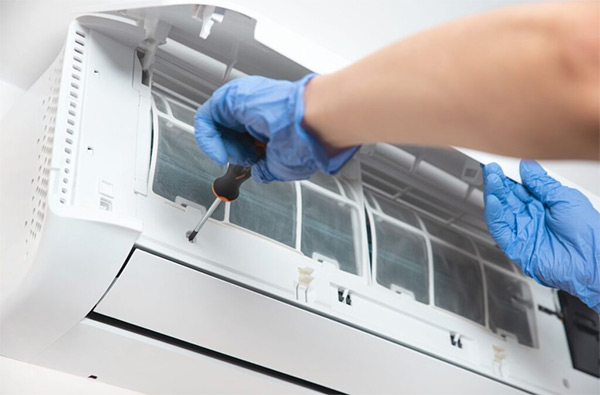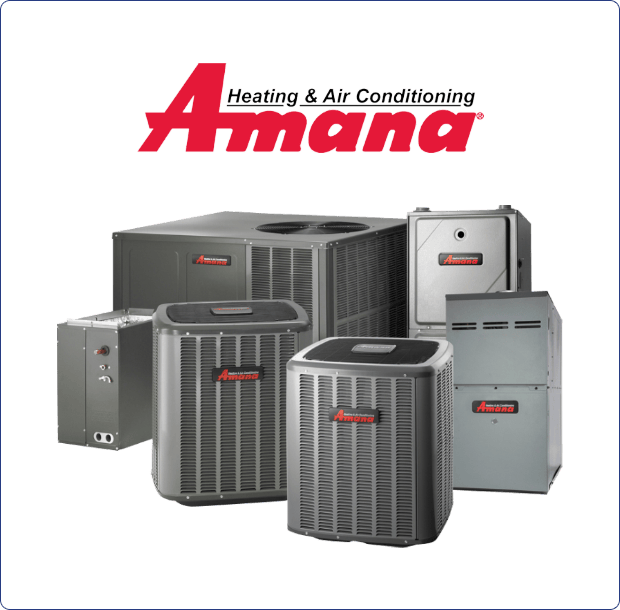Deciding whether to repair or replace your air conditioning unit is a significant decision that can impact your comfort, energy bills, and overall home environment. Various factors need to be considered to make an informed choice. Understanding these factors helps you decide if a new air conditioning system is the right move for your household or business. Regular maintenance and timely repairs can keep a system running well, but there comes a point when replacement is the more sensible option.

Older air conditioning units often become less efficient over time, leading to increased energy bills, frequent repairs, and inconsistent cooling. If your system is aging and struggles to maintain a comfortable temperature, it might be time to look into replacing it. Newer models offer substantial improvements in energy efficiency, air quality, and comfort, making them a worthwhile investment for many property owners.
Evaluating the current state of your air conditioning system and the potential benefits of upgrading can help you make the best decision for your needs. Working closely with our professionals ensures that you select the most suitable system for your home or business, optimizing both comfort and operational costs.
Signs It’s Time for an AC Replacement
Frequent and Costly Repairs
If you find yourself calling for AC repairs more often than usual, it is a clear signal that your system might be on its last legs. While occasional repairs are part of regular maintenance, constant repairs can add up quickly and become a significant financial burden. When repair costs total more than half the price of a new unit, it’s often more cost-effective to invest in an AC replacement. Upgrading to a new, more reliable system can relieve you of the ongoing stress and expense of multiple repairs.
Inefficiency and High Energy Bills
An aging air conditioning unit typically becomes less efficient over time. As components wear out, the system has to work harder to cool your home, resulting in higher energy consumption and inflated utility bills. If you notice a sudden spike in your energy bills without a corresponding increase in usage, it may be time to consider a replacement. Newer models are designed to be much more energy-efficient, helping you save money in the long run while keeping your home comfortable.
Inconsistent Cooling and Comfort Levels
Inconsistent cooling is another sign that your AC system may need to be replaced. If some rooms in your home are much cooler than others or if you experience hot and cold spots, the unit may struggle to distribute air evenly. This not only affects your comfort but also indicates that the system is no longer performing at its optimum level. A new AC system can provide consistent cooling and improve overall indoor comfort.
Age of the System
The age of your air conditioning unit is a significant factor in deciding whether to replace it. Most AC systems have a lifespan of about 10-15 years. If your unit is approaching or has exceeded this age range, it is likely time for a replacement. Older systems are more prone to breakdowns and less energy-efficient, making a new installation a better option for reliability and savings.
Benefits of Upgrading Your AC System
Improved Energy Efficiency
One of the most compelling reasons to upgrade your AC system is improved energy efficiency. Modern air conditioning units are designed with advanced technology that allows them to use less energy to cool your home effectively. This increased efficiency translates to lower utility bills and a smaller carbon footprint. Investing in a new, energy-efficient system can provide significant long-term savings and contribute to a more environmentally friendly home.
Enhanced Indoor Air Quality
Newer AC systems also offer enhanced indoor air quality. They come equipped with better filtration systems that can capture more dust, allergens, and other pollutants. Improved air quality helps create a healthier indoor environment, which is especially important for individuals with respiratory issues or allergies. Upgrading your system ensures that you and your family breathe cleaner, fresher air.
Advanced Features and Smart Technology
Modern AC units come with advanced features and smart technology that offer greater convenience and control. Features such as programmable thermostats, zoning systems, and remote access via smartphone apps allow you to manage your home’s temperature more precisely. These innovations not only enhance comfort but also provide more efficient system operation, helping you save on energy costs.
Reduced Environmental Impact
Upgrading to a newer AC system also reduces your environmental impact. Many older systems use refrigerants that are harmful to the ozone layer. New units comply with current environmental standards, using eco-friendly refrigerants and energy-efficient designs. This reduction in greenhouse gas emissions contributes to a healthier planet while keeping your home cool and comfortable.
Choosing the Right AC System for Your Needs
Understanding Different Types of AC Systems
Selecting the right type of air conditioning system is crucial for achieving optimal comfort and efficiency in your home or business. Central air conditioning systems are a popular choice, providing consistent cooling to multiple rooms by circulating cool air through a network of ducts. These systems are ideal for larger homes or buildings and offer the convenience of automated temperature control.
Ductless mini-split systems, on the other hand, do not require ductwork and are perfect for homes without existing ducts or for new construction projects. These systems consist of an outdoor compressor and one or more indoor air handling units, giving you the flexibility to cool individual rooms or zones. Window units are another option, typically used for single rooms or small apartments. They are less expensive and easier to install but may not provide the same level of efficiency and comfort as central or mini-split systems.
Factors to Consider When Selecting a New System
Size of your space is a critical factor when choosing an AC system. An undersized unit will struggle to cool your home effectively, while an oversized unit may cycle on and off too frequently, leading to excess wear and energy use. Our professionals can perform a load calculation to determine the right-sized unit for your space.
Climate considerations also play a role in your decision. For instance, homes in hotter climates may benefit from systems with higher SEER (Seasonal Energy Efficiency Ratio) ratings for better efficiency during extended periods of use. Budget and financing options are equally important. While high-efficiency systems may have a higher upfront cost, they often provide significant savings on utility bills over time. We can help you explore various financing options to make your investment more manageable.
Why Professional Installation Matters
Importance of Proper Installation
Proper installation is vital for the performance and longevity of your new AC system. An incorrectly installed unit can lead to a host of problems, including reduced efficiency, frequent breakdowns, and shorter lifespan. Our professionals ensure that your system is installed according to manufacturer specifications and local building codes, reducing the risk of future issues and maximizing your system’s lifespan.
What to Expect from Our Professionals
When you choose our expert team for your installation, you can expect high-quality service from start to finish. Our professionals conduct a thorough assessment of your home or business to recommend the best system for your needs. They handle every aspect of the installation process, from removing your old unit to setting up the new one and testing it to ensure everything operates smoothly. Clear communication and attention to detail are our priorities, ensuring you are fully satisfied with the service provided.
Post-Installation Tips for Optimal Performance
Maintaining your new AC system is crucial for keeping it running efficiently. Regular AC tune-ups performed by our technicians can help identify and address potential issues before they become major problems. Basic homeowner maintenance tasks, such as regularly changing filters and keeping the outdoor unit clean, also contribute to optimal performance. Additionally, scheduling routine inspections ensures your system remains in peak condition, providing reliable cooling and extending its lifespan.
Conclusion
Choosing to replace your air conditioning system is a significant decision that offers many long-term benefits, from improved energy efficiency to enhanced indoor comfort. By recognizing the signs of when it’s time for a replacement and understanding the advantages of upgrading, you can make an informed decision.
At Campbell Air Conditioning, we are committed to making your home comfortable with top-notch AC replacement in Trussville. Our experts are ready to guide you through every step of the process, from selecting the right system to maintaining it for peak performance. Contact us today to schedule your consultation and take the first step toward a cooler, more comfortable home!





